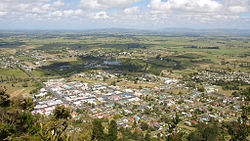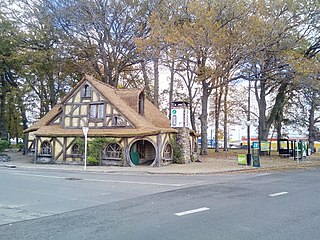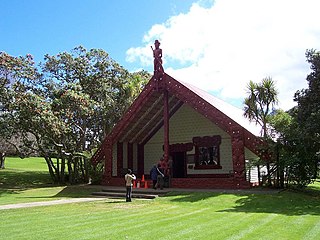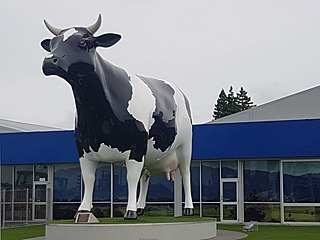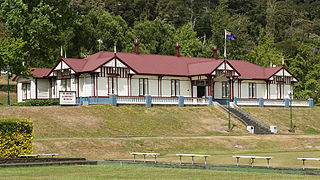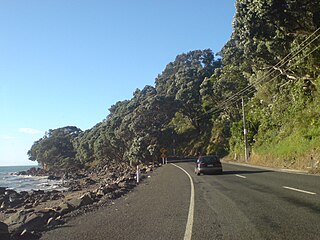Demographics
Matamata-Piako District covers 1,755.35 km2 (677.74 sq mi) [1] and had an estimated population of 37,700 as of June 2023, [2] with a population density of 21.5 people per km2. 8,960 people live in Morrinsville, 9,130 in Matamata, and 4,670 in Te Aroha.
Ethnicities, 2023 Census| Ethnicity | Population |
|---|
| New Zealand European | |
|---|
| Māori | |
|---|
| Pasifika | |
|---|
| Asian | |
|---|
| MELAA | |
|---|
| Other | |
|---|
Historical population| Year | | |
|---|
| 2006 | 30,483 | — |
|---|
| 2013 | 31,536 | +0.49% |
|---|
| 2018 | 34,404 | +1.76% |
|---|
| 2023 | 37,098 | +1.52% |
|---|
| Source: [3] [4] |
Matamata-Piako District had a population of 37,098 in the 2023 New Zealand census, an increase of 2,694 people (7.8%) since the 2018 census, and an increase of 5,562 people (17.6%) since the 2013 census. There were 15,231 dwellings. The median age was 40.8 years (compared with 38.1 years nationally). There were 7,299 people (19.7%) aged under 15 years, 6,189 (16.7%) aged 15 to 29, 15,615 (42.1%) aged 30 to 64, and 7,986 (21.5%) aged 65 or older. [4]
Ethnicities were 83.3% European/Pākehā, 18.6% Māori, 2.6% Pasifika, 6.9% Asian, 0.9% Middle Eastern, Latin American and African New Zealanders, and 1.0% other. People may identify with more than one ethnicity. [4]
Matamata-Piako District had a population of 34,404 at the 2018 New Zealand census. There were 12,873 households, comprising 17,001 males and 17,403 females, giving a sex ratio of 0.98 males per female.
The percentage of people born overseas was 14.4, compared with 27.1% nationally.
Although some people chose not to answer the census's question about religious affiliation, 51.4% had no religion, 35.8% were Christian, 0.9% had Māori religious beliefs, 0.8% were Hindu, 0.3% were Muslim, 0.9% were Buddhist and 1.8% had other religions.
Of those at least 15 years old, 3,204 (11.7%) people had a bachelor's or higher degree, and 7,203 (26.3%) people had no formal qualifications. The median income was $32,400, compared with $31,800 nationally. 4,221 people (15.4%) earned over $70,000 compared to 17.2% nationally. The employment status of those at least 15 was that 13,566 (49.5%) people were employed full-time, 4,077 (14.9%) were part-time, and 876 (3.2%) were unemployed. [3]
Individual wards| Name | Area (km2) | Population | Density (per km2) | Households | Median age | Median income |
|---|
| Morrinsville Ward | 573.00 | 12,501 | 21.82 | 4,608 | 38.6 years | $35,200 |
| Te Aroha Ward | 517.10 | 8,268 | 15.99 | 3,126 | 43.3 years | $29,300 |
| Matamata Ward | 665.24 | 13,635 | 20.50 | 5,142 | 41.4 years | $31,800 |
| New Zealand | | | | | 37.4 years | $31,800 |
|---|
